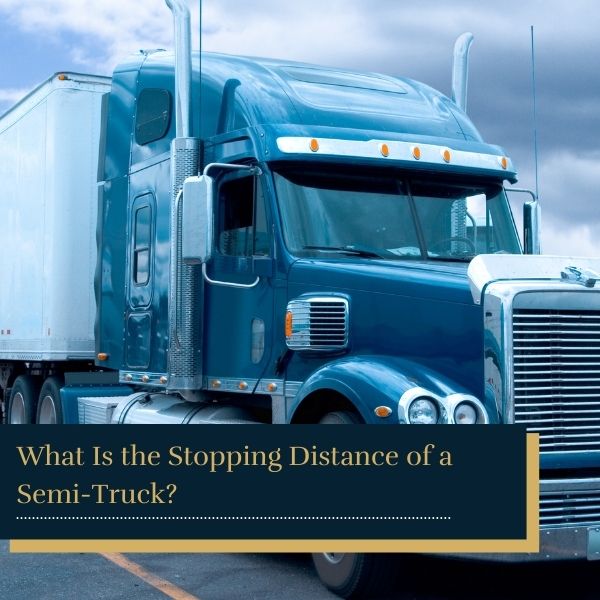A fully-loaded semi-truck traveling at highway speeds (i.e., around 65 miles per hour) can traverse the length of two football fields before coming to a complete stop. This long stopping distance is due mostly to their enormous size.
The average commercial truck is much, much heavier than the average passenger car. They can weigh anywhere between 35,000 pounds when empty and over 80,000 pounds when fully loaded. By contrast, everyday passenger vehicles normally clock in somewhere between 3,500-5,000 pounds. This enormous size differential also goes a long way in explaining why accidents between these two classes of vehicles can be so destructive and life-threatening.
Injury victims in truck accidents should remember that these cases tend to involve complex litigation and combative defendants. The sooner you bring your case to an attorney, the sooner they can get you off to a strong start down the road toward compensation. Contact Robinette Legal Group, PLLC, today to learn more in a free, no-obligation consultation with an experienced West Virginia truck accident lawyer.
Factors Impacting Stopping Distance
The total stopping distance for a large truck can vary depending on three key elements. They are as follows:
- Perception distance – This refers to the distance at which a truck driver can identify road hazards, stopped traffic, or other conditions requiring them to stop or slow down.
- Reaction time – This refers to the amount of time it takes a trucker to change course or apply the brakes to avoid an accident.
- Braking distance – This is the distance a truck travels from the moment the truck driver begins applying their brakes until the truck comes to a full stop.
Understanding the Brake System in Commercial Trucks
“Brake lag” is another important factor that increases braking distance for many large trucks. Passenger cars normally rely on hydraulic brakes, which use brake fluid to work and bring their vehicles to a faster stop. By contrast, brakes in large commercial trucks normally use compressed air instead. Though air brakes are more reliable and powerful, they also operate more slowly.
Common Causes of Brake Failure in Commercial Trucks
Because delivery trucks regularly transport large amounts of cargo across long distances, they tend to undergo much more wear and tear compared to everyday passenger vehicles. One of the most important components in need of regular maintenance in a truck is the brake system. Faulty truck maintenance significantly increases the risk of an accident. Common risks associated with improper brake use or maintenance include:
- Failing to brake in time to come to a full stop
- Lack of appropriate maintenance or inspections
- Overloading trucks beyond their weight limits
- Manufacturing or design defects
Consult With a Truck Accident Lawyer at Robinette Legal Group, PLLC
Understanding how long large vehicles take to slow down is a great way to stay safe on the road. Of course, no amount of care can reduce the risk of traffic accidents down to zero. When they happen, injured victims may be entitled to significant legal compensation from the responsible party.
If you were injured in a West Virginia truck accident you did not cause, Robinette Legal Group, PLLC, is ready to evaluate your case and handle it from start to finish. We will not stop until you receive the full and fair compensation you are legally entitled to. Contact us today to learn more in a free, no-obligation consultation with an experienced Morgantown truck accident lawyer.
Jeffery Robinette was admitted to practice law in 1991 and is licensed in all levels of state and federal trial courts in West Virginia. Mr. Robinette is also licensed in all state and federal appeals courts in West Virginia and the United States Supreme Court. As a National Board Certified Trial Attorney who has handled hundreds of motor vehicle, injury, and construction defect claims and a leading author on insurance claims settlement issues and difficulties in West Virginia, Jeff Robinette is uniquely qualified to represent your best interest.





